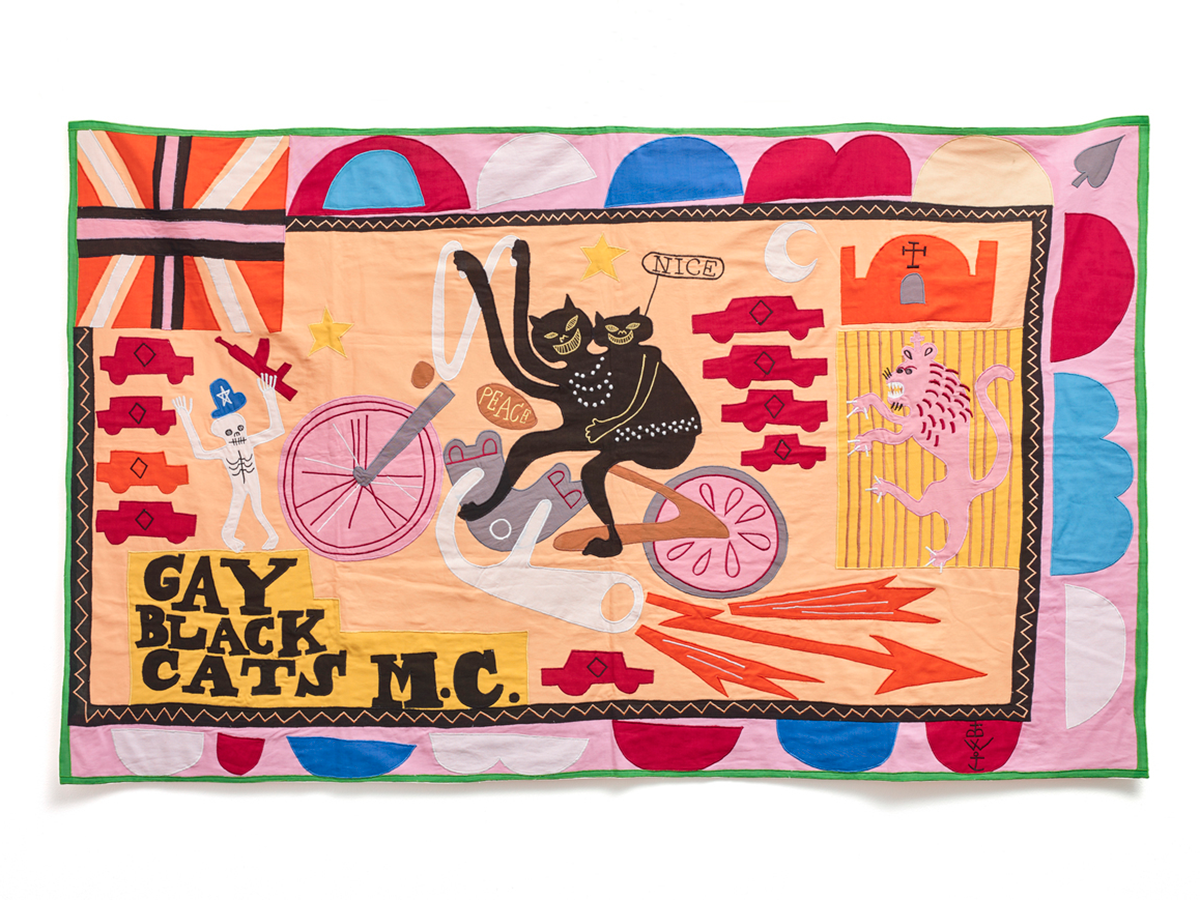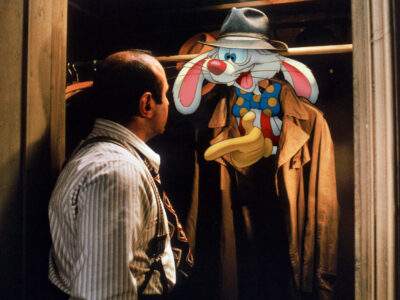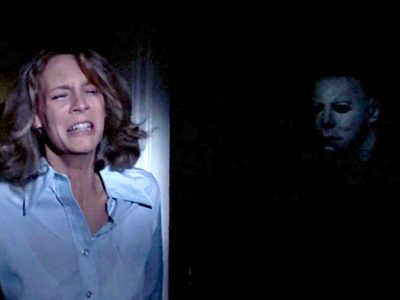Five John Carpenter Films to watch this winter
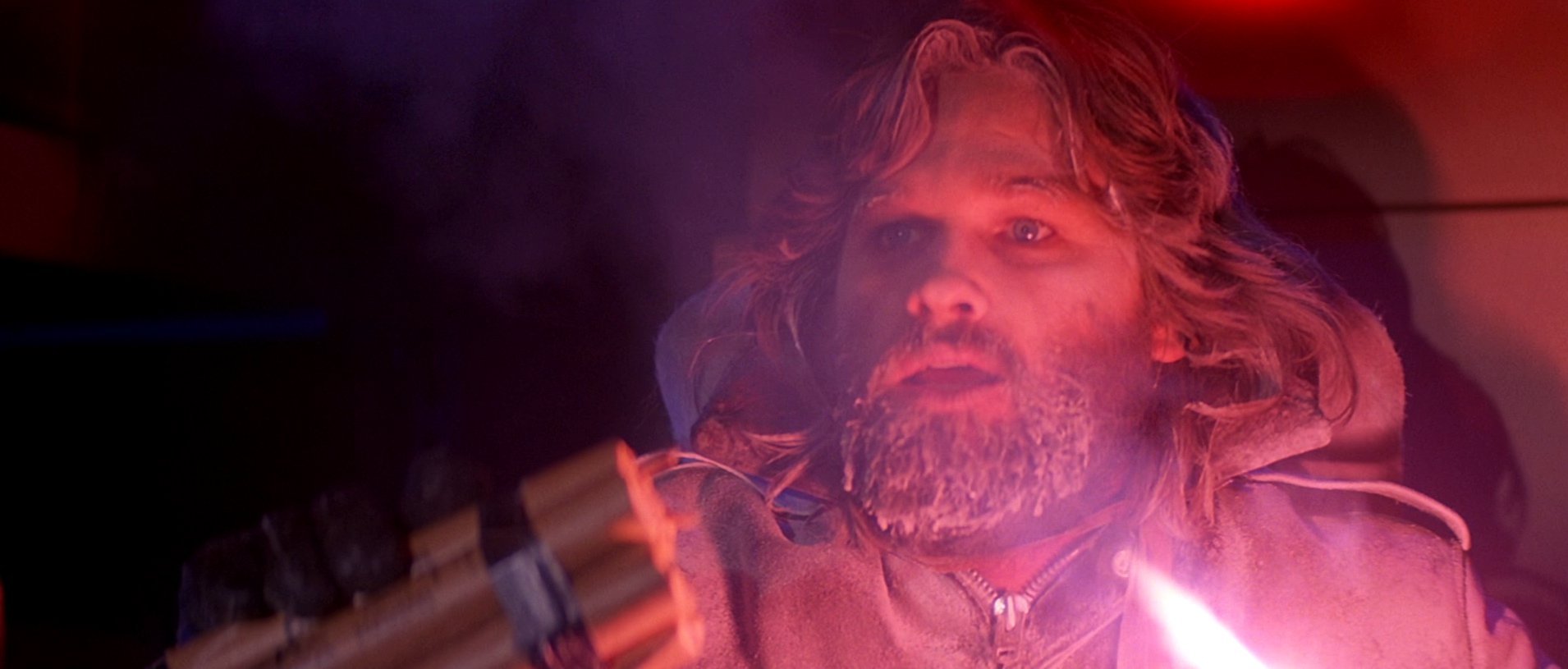
Harry runs us through his top films by his favourite director
Simply put, John Carpenter is one of my favourite directors. Despite some of his films being received poorly at their time of release, many have been reassessed by modern audiences and are considered to be high points of their respective genres. Admittedly all of my choices are from the first seven years of his career, but there are great films to be found later on such as Prince of Darkness (1987) and In the Mouth of Madness (1995). Whether you’re looking for a classic horror film, a spoof on Stanley Kubrick, or just some synth-based scores, it’s all here.
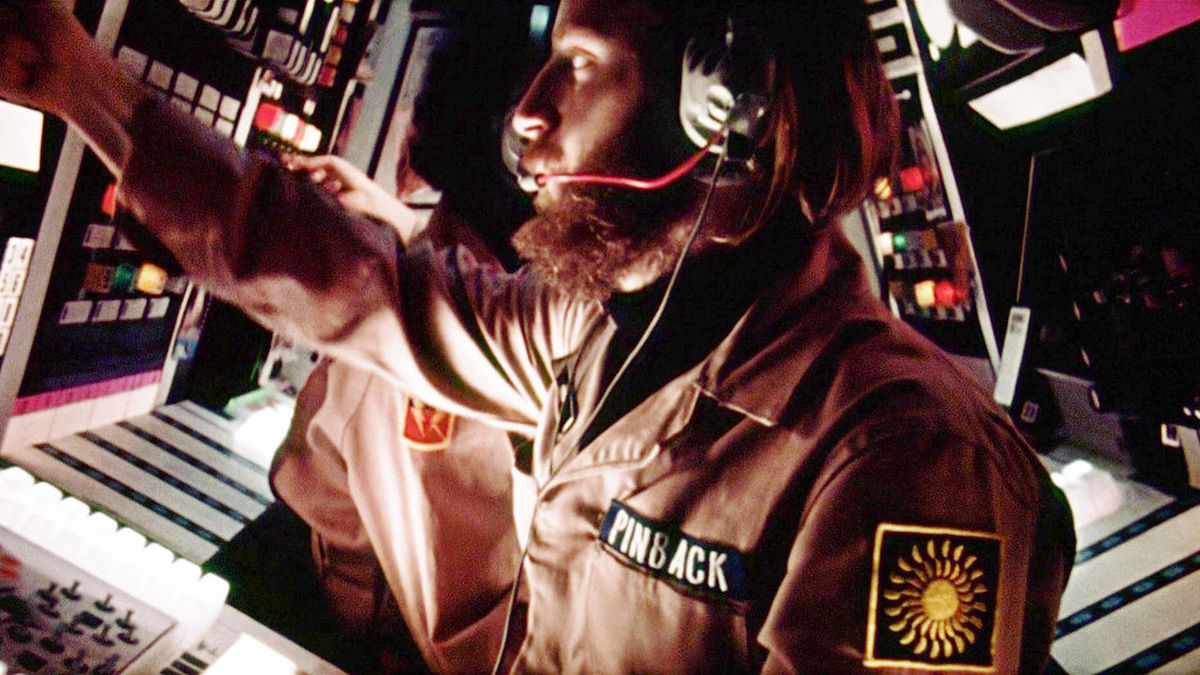
-
Dark Star (1975)
John Carpenter’s first full-length film, Dark Star is a spoof of Stanley Kubrick’s 2001: A Space Odyssey (1968) which follows the crew of the Dark Star spaceship who for the last twenty years have been destroying unstable planets which may prevent future human colonisation of the solar system. Like Kubrick, Carpenter suggests that there is little wonder to be found in space when you have been travelling for a long period of time, but there is no cosmic intervention to be found here. Life on the Dark Star is one of complete monotony; it takes ten years for a message to reach Earth, so any communication is meaningless as the crew try to fill their day by any means necessary, be it by taking apart and putting back together parts of the ship or feeding the pet alien in scene which develops into Chaplin-esque slapstick comedy. Following his involvement in Dark Star and seeing the poor reception to the comedic scenes Dan O’Bannon would go on to write Alien (1979), claiming that ‘If I can’t make them laugh, maybe I can make them scream’.
Please Note: This work contains flashing images which may affect viewers who are susceptible to photosensitive epilepsy.
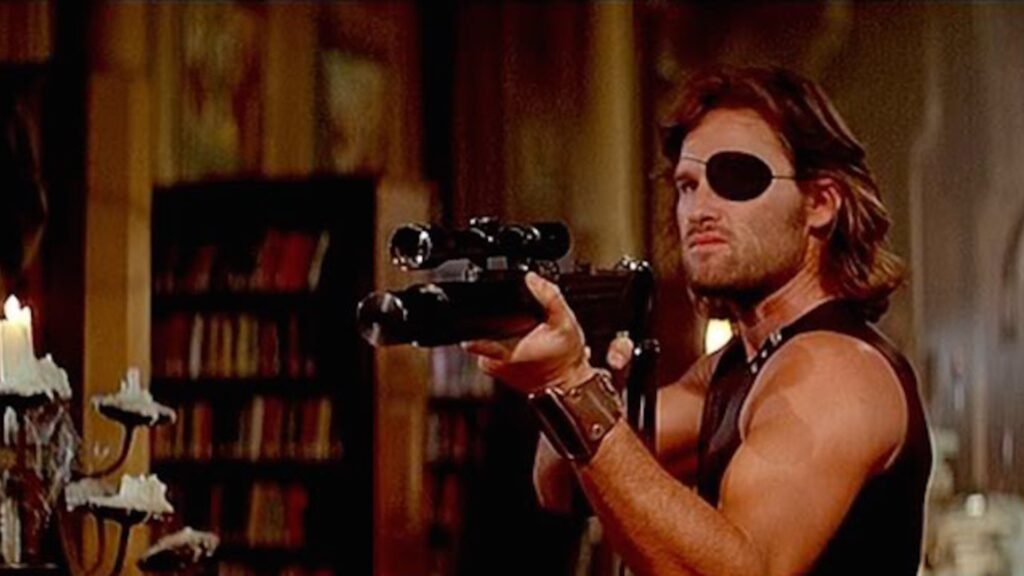
-
Escape from New York (1981)
Of all the John Carpenter films Escape From New York is probably the most John Carpenter. Hardened anti-hero? Check. Corrupt authority figure? Check. A Hawksian woman? Check. Villainous gangs? Definitely. Just before films like Commando (1985) and Rambo: First Blood Part II (1985) changed the face of American action films, you had heroes like Kurt Russell’s Snake Plissken – they don’t have muscles like Schwarzenegger or Stallone, but you still know that if anyone can save president, he can. Surrounded by armed guards, wearing an eyepatch and a battered leather jacket, all whilst treating the American officials with complete contempt, he is a classic 80s action hero with all of the exaggerated masculine energy of the era.
At the heart of the film is a web of uneasy alliances that Snake forms throughout the film, be it with the American government or the people he encounters within the fortified New York where crime has rocketed. The tension rides on whether Snake will be shot by his enemies or stabbed in the back by his ‘friends’.
As a long-term collaborator with John Carpenter, Kurt Russell has been the heart of many of his films and this will not be the last we see of him on this list.
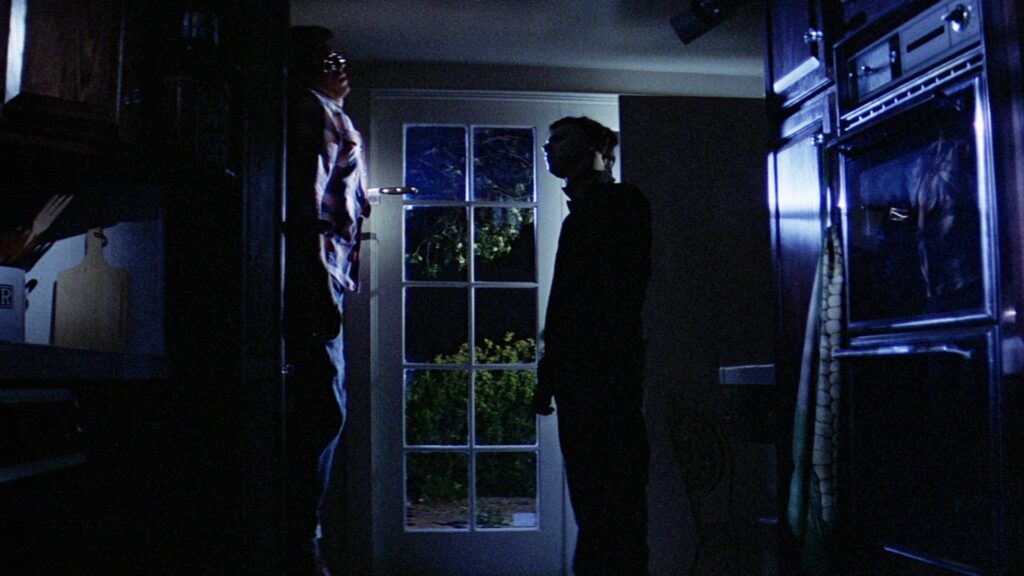
-
Halloween (1978)
What is there to be said about Halloween (1978) which hasn’t been said countless times already? This is the film that refined the slasher genre tropes outlined in Psycho (1960) and Black Christmas (1964), and to which this film owes a great debt. Fifteen years to the day after murdering his sister, Michael Myers escapes from the mental hospital where he was being held and returns to Haddonfield with murderous consequence. Cinematographer Dean Cundey, who shot films such as Who Framed Roger Rabbit? (1988) and Jurassic Park (1993), does some of his best work in the now iconic tracking shots which are dotted throughout the film as the camera stalks its main characters much like Myers does himself. Spawning twelve sequels of varying quality (to say the least), Halloween remains one of the horror genre’s most well-known and successful franchises.
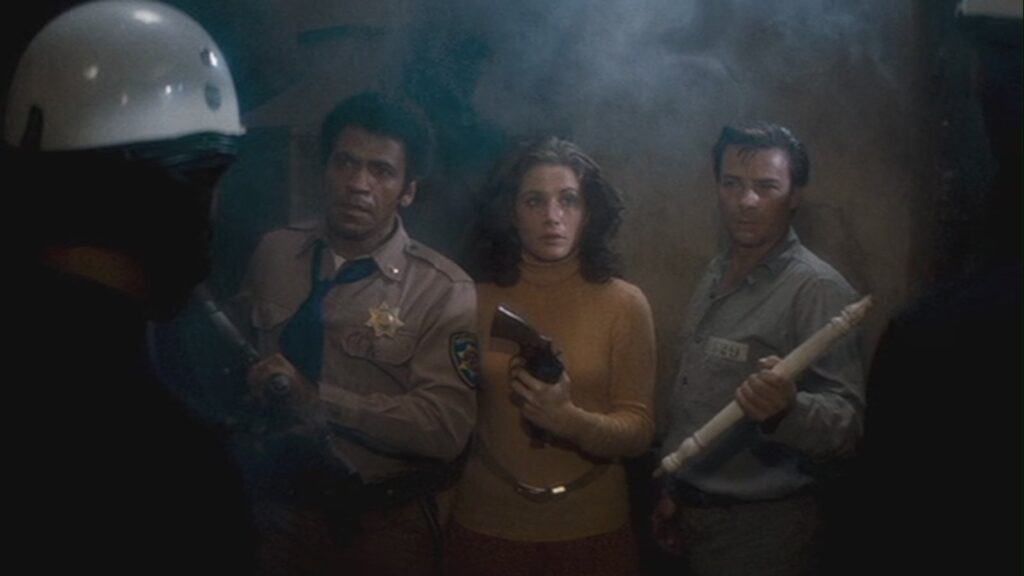
-
Assault on Precinct 13 (1976)
Inspired by the 1959 film Rio Bravo, Assault on Precinct 13 feels more like of an urbanised Western than a simple action film, as a decommissioned police station is defended from a criminal gang by the few people on-site. It’s unsurprising that Carpenter cited George A. Romero’s Night of the Living Dead (1976) as an influence for this film, as both the gang members and the zombies of Assault on Precinct 13 and Night of the Living Dead attack in seemingly endless numbers and the inevitability of repeated assaults makes for increasingly tense viewing as they both descend on a single building. Featuring perhaps Carpenter’s best score, the film is seemingly haunted by a minimalistic synth music which creeps in during the quieter moments, perpetuating the sense of unease which is woven throughout.
For some this is Carpenter’s best work, but for me one film stands head and shoulders above the rest.

-
The Thing (1982)
Move over Blade Runner and E.T. the Extra -Terrestrial because The Thing is the best sci-fi film of 1982. Based on the 1938 novella Who Goes There?, the film concerns a group of Antarctic researchers who find themselves under threat from an alien which can take the form of its victims causing paranoia to spread through the base. More than any other this film highlights Carpenter’s masterful ability to create tension onscreen as the characters do not know who they can trust or whether they are still even human.
Upon its release The Thing was received very poorly by critics who were disgusted by the film’s use of practical effects and disappointed by the lack of characterisation of its main cast. The reception of the film caused Carpenter to be bought out of his multi-film contract by Universal Studios and lose his chance to direct Firestarter (1984). Like many of Carpenter’s films however The Thing has been reassessed by modern audiences and is now considered to be one of the greatest horror films of all time.
What do you make of John Carpenter’s filmography? Let us know in the comments.



